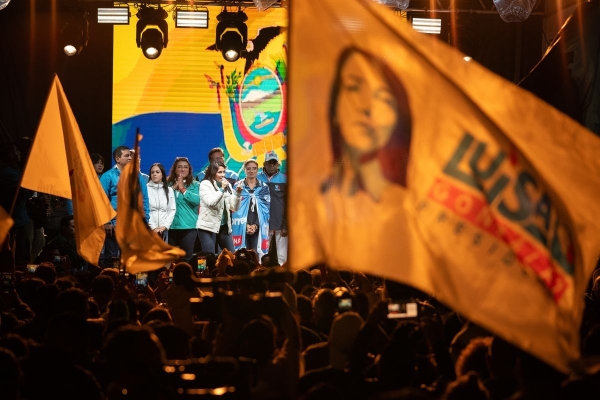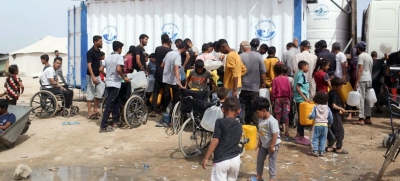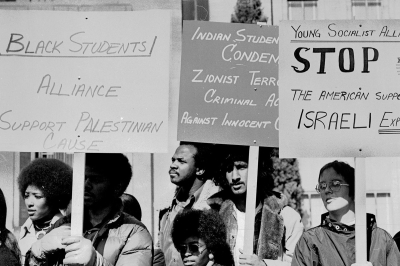Ecuador’s presidential elections are now headed to a runoff after no candidate secured the support necessary to win outright. The elections followed the shocking assassination of anti-corruption candidate Fernando Villavicencio two weeks ago.
According to the results of Sunday’s elections, two candidates — leftist Luisa González and center-right candidate Daniel Noboa — will move on to the runoffs, which are scheduled to take place on October 15. Under Ecuadorian law, if no candidate secures 50 percent of the vote, or 40 percent with a 10-point lead, the election heads to a runoff.
The outcome of this election could prove hugely significant for Ecuador, which is grappling with a crisis of drug-related violence and serious economic challenges, two issues facing multiple countries in Latin America.
The election itself took place under disturbing circumstances, as the country was still under a national emergency following Villavicencio’s killing and soldiers were stationed outside numerous polling stations. Villavicencio had been the most vocal candidate on the issue of corruption and rising drug violence, and leaders have already tied his death to organized crime.
Whoever wins this runoff will determine how the country opts to approach security policy as well as the economy.
What’s at stake in Ecuador’s elections?
Depending on who wins in October’s runoffs, it could shift Ecuador back to the left, echoing trends that have taken place in other parts of Latin America. González favors an expansion of health care and education social programs, an approach touted by multiple leaders in Colombia, Peru, and Chile who’ve sought to respond to economic frustrations following the pandemic. Her election would mark a change from the current right-leaning president and add to the region’s renewed “pink tide,” which has seen voters once again picking left-leaning governments in part to push back against the previous status quo.
González’s advancement to the top two in this race also comes the same weekend that Guatemala elected anti-corruption progressive candidate Bernardo Arévalo.
In the first round of voting, González picked up 33 percent of the vote, while Noboa, the son of a banana tycoon in Ecuador, garnered a better-than-expected 24 percent. If Noboa is able to unite González’s opposition in the runoff, he could wind up winning the election as well.
In the end, the runoff appears to be pitting a leftist focused on more expansive social policy against a business leader who has emphasized how private investment can help the economy — two very different approaches for how Ecuador moves forward.
What are González and Noboa campaigning on?
Between now and mid-October, both candidates have the opportunity to continue campaigning and trying to rally their respective voters. The two have offered dueling visions:
What González has pitched: González is seen as continuing the legacy of former President Rafael Correa, who led the country from 2007 to 2017 and pushed strong social spending including a cash transfer program that helped combat poverty. González has said she would use $2.5 billion in reserves to resurrect some of the social programs that Correa established.
González is socially conservative, however, and opposes abortion.
Her arguments center on bringing back a time in Ecuador that was more stable than the current chaos the country has had to deal with. In recent years, Ecuador has seen a surge in drug violence as different cartels have competed for access to the country’s trade routes. She’s talked about reopening the Justice Ministry and addressing corruption in law enforcement as ways to respond.
González could also revive some of the most critiqued parts of Correa’s presidency, which saw reductions in poverty but also included hostility toward the press and an expansion of executive power. Additionally, Correa reduced ties with the US, including cutting the country’s relationship with the Drug Enforcement Agency and ousting certain diplomats, efforts that González could promote as well. Since leaving office, Correa has fled to Belgium after facing sentencing for corruption; González has said she’d bring him on as a chief adviser. (He’s also claimed he did not do anything wrong.)
“González is selling the idea of a return to the years when ex-President Rafael Correa was in office,” says Will Freeman, a Latin American studies expert at the Council on Foreign Relations.
“González’s is left of center economically, socially conservative, and would favor realigning Ecuador geopolitically to bring it closer to the United States’ geopolitical challengers, such as China, Russia, and Iran.”
What Noboa has pitched: Noboa is a 35-year-old businessman and a member of one of the wealthiest families in the country. He’s served in Ecuador’s legislature since 2021, and previously worked as an entrepreneur and at his family’s firm, the Noboa Corporation. He’s been more conservative on expansions to social programs, and has instead emphasized tax incentives for companies to make more investments in the country and addressing employment problems.
“Noboa is center-right, favoring some extensions of the social safety net but coming from a business background,” says Freeman. Noboa has also taken a more aggressive approach to crime, noting that he would station more military forces along the borders of Colombia and Peru, both of which produce high amounts of cocaine.
Noboa’s running mate, Verónica Abad, is also socially conservative, opposes abortion, and supports former President Donald Trump.
Noboa has tried to emphasize that he speaks for younger voters who oppose “Correaism” and are interested in new leadership beyond the more establishment options in Ecuador.






